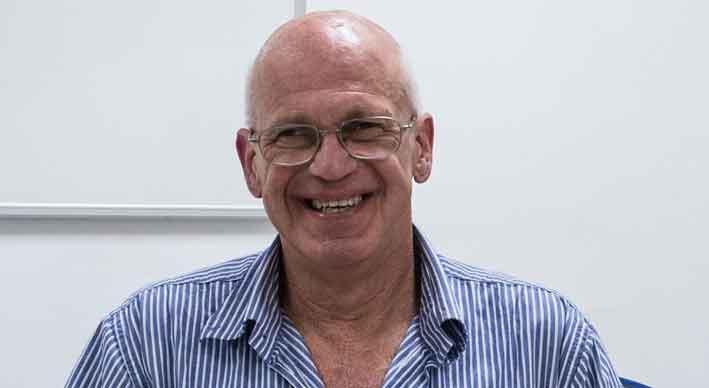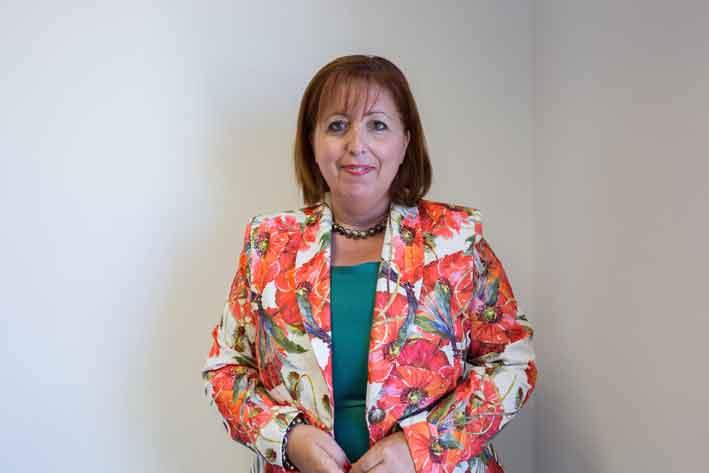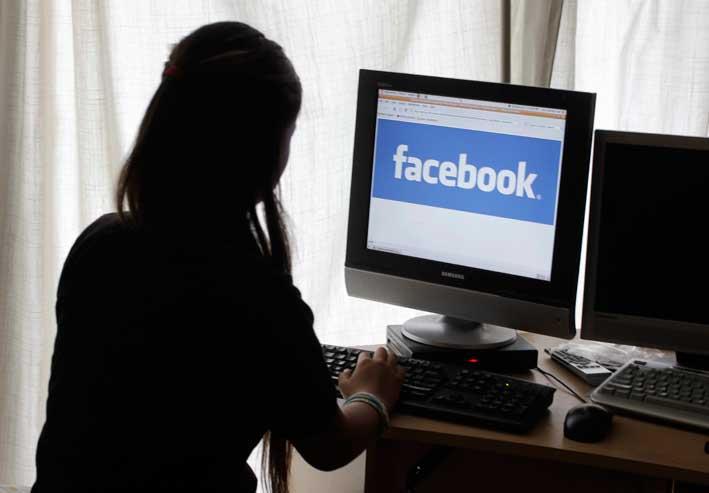The nature of independent media
Dr Gorg Mallia
According to Dr Mallia, there isn’t any media which is totally independent. “You are going to find that everybody has a sort of bias and this can be easily borne out through research.” He explained that bias of media can be researched by, for example, analyzing the inclination of readership, or conducting a scientific analysis on language and the connotations of words used in relation to specific subjects, in order to find the favored inclination.
Bringing up how Trump tends to attack media who say things against him, he went on to explain that governments “would much rather have all the media outlets support what they are saying.” “However, the reports which are against the government are not necessarily in favour of the Opposition. If they happen to attack government policies more than they attack, say, Opposition policies, it is because the government is currently on the spot,” he explained, “so that does not necessarily make the media non-independent just because they may be biased. They are just not dependent on the government or the Opposition for patronage; they are independent from all parties.”
He went on to say that he is not a believer of, what he terms as ‘artificial independence’, for example when one page is assigned to news about one party then the next for the other party etc. “That doesn’t work,” he says, “it’s an artificial implementation of objectivity, you will be trapped in a narrow parameter where you cannot move.”
“If it just so happens that 70% is against the government, and 30% against to Opposition, or vice versa, then they are still independent, just at that point in time they are attacking the news as they see it. Providing there has been all the groundwork done that there is support for what journalists are saying, then that’s the way it should be, trying to be independent by being equidistant, is betrayal of what a journalist should be,” he said.

Dr Carmen Sammut
Dr Sammut believes that the word ‘independent media’ is “difficult to conceptualize.” She explained that if you had to refer to independent media in the US, one would refer to it as media structures which are not commercial, which do not belong to co-operations. However, this concept may vary on a local level. “In Malta, independent media is considered the media not owned by the parties,” adding that, however, “independent media also have quite clear editorial lines,” she went on to say that we have a pluralistic media system, in terms of perspectives. Dr Sammut noted that she prefers the use of the term ‘angle’ or ‘perspective’ as opposed to the word ‘bias’. “Bias is when there is a spin,” she said.
In an age of media saturation, where traditional and new media (such as social media) live side by side, Dr Sammut believes it is sometimes difficult to remember from where information is obtained. Emphasizing that, whether it is considered as independent media or not, mainstream media can provide added value, she said that such media “can be more careful about information that they pass along, as opposed to virtual clubs.” I think when you read something you look at the source and people tend to read between the lines. Society is becoming increasingly media-competent, you can check information.”
She mentioned that independent media houses might also want to “satisfy their readership,” which could be a possible cause of political affiliation. Highlighting the ownership when analyzing the media, is also a factor which should be taken into consideration, according to Dr Sammut. “Ownership matters,” she says, “media houses are businesses at the end of the day.”

Only ¼ of Maltese tend to trust the media. However, ½ of Maltese trust what the government says
Dr Gorg Mallia
Dr Mallia said that he finds it “unfortunate” that people believe what the government says more than what the media says.
“Both the government and the media have an agenda, but the media has more of an informative, independent agenda than the government,” he said. “I think the media should always be the informative voice for the people rather than the public blindly accepting what the government says. At the end of the day, the government is always run by a political party, that has a particular agenda.”
“We also need to see whether these seventy something percent of respondents (of those not trusting the media) are the general opinions? Are those people doting on patronage, are they are the solid support base of what is essentially a polarized society, are they getting something out of this, are they believing the party? If I support that party, I will say everything I can to support that party in surveys,” he said.

Dr Carmen Sammut
Dr Sammut expressed her concern that it is “unhealthy” that the media has gained an untrustworthy reputation for itself.
“The Eurobarometer year after year has been showing that trust in media is decreasing. People are sceptical, and are not so vulnerable to media onslaught.
Apart from the fact that the government could be believable or not, it is unhealthy that the media have managed to become so mistrusted,” she said.
“How have we arrived at this level?” she asked, adding that the situation overseas is the same. “In our case, these figures should open our eyes. Why haven’t we managed to present journalism which is more professional and ethical?” She went on to explain the strong link needed between ethics and journalism “ethics strengthens the journalist,” she said.
“There is some recognition that if you don’t have ethics you will not be trusted,” she said. Adding that although ethical discussions have recently taken place, “this discourse stopped because there was more polarization and polarization has never helped journalism. I hope there will be a revival in this discourse, to create self-regulating structures,” she said.
Linked with the idea of ethical journalism, Dr Sammut went on to explain that journalists should be careful when it comes to language and the reputation of individuals. “We have situations where people’s reputations are broken by the media, such as teachers who have been accused of pedophilia, and then won’t be found guilty, and their reputation will not be restored.”
Adding to what may be affecting trust, Dr Sammut listed that context should be given and competence in the issue is important. She said that ‘trial by media’ sometimes “decides who is guilty and not guilty. Presenting something as a fact when you don’t have all the information.” “Trial by media can end up in losing trust,” she said.

Social media as an echo chamber
Is social media minimizing discourse regarding specific views, due to its selective nature?
Dr Gorg Mallia
“The problems remain the bubbles that we build around ourselves,” said Dr Mallia. “There is the bubble of social networking, which you can describe as an echo chamber, which echoes what you like, what you want and feel, but then we also tend to read within our comfort zone. It is only a few who will struggle outside of their comfort zone and this is also of fact that all media, newspaper, radio, television, have a bias, an editorial bias, and the readers will go for the bias.”
“The bubble we have on Facebook, where we have our Facebook friends and the algorithm which presents to us only things we like on your timeline, makes us see what we think as the correct way, as one that is endorsed by just about everybody we know. “
“We see the very negative and positive side amplified of humanity, and more than that we see the lack of understanding of what social media is through how people use it, lack of understanding also gives this echo-chamber effect. How many times have we seen people write that they want to block a person. Why? Because they are saying things we don’t want to hear. Desensitization, our lack of want to hear the other side, and at the same time believing that that one side is being predominantly endorsed by just about everyone we know, that is why many were shocked with what happened also in the last general election also, as their newsfeed was painting a different picture.”
Dr Carmen Sammut
“When people oppose you and you do not agree with them, or they have a different lifestyle to you, you start eliminating and end up with a network that is very similar to your own perspective,” she said, adding that this is what happened in the last general elections, for example, in polls.”
“In the echo chamber everyone has one perspective and this is worrying,” she said. “Not only on a political level, but also, for example, when it comes to things such as racism and sexism, you eliminate people who are racist or sexist, and end up in a bubble. You won’t be grounded and seeing what other people in society will be seeing.”
“In the echo chamber there is also a lot of emotion, and maybe in order for politicians to get where they want to be, they are being passionate and emotional, hence populist in the way they deliver,” “ Look at Trump on Twitter,” she said as an example, adding that “democracy also requires there to be a bit of a rational deliberation.”

The way forward
Dr Gorg Mallia
“The way forward is for professional journalists, who know what needs doing to verify something before they publish it, to keep plodding on. We are already edging on autocracy, when you have the government with the amount of advantage that this present government has, (and I’m not point fingers at a specific party, it could be either has a large amount of votes in their favour, it’s just democracy playing out, but in the end, when there is a large seat majority), that party is more likely to do what it likes,” he said.
“So without the media as an observer of understanding and communicating after having done its job well, rather than hinting or implying at things, but stating facts (even if those facts will then be spun to be false facts), we are pretty much in an autocratic society, and that is something which cannot happen,” he concluded.
Dr Carmen Sammut
Dr Sammut pointed to strengthening ethical journalism, and elaborated on the priority of eliminating ‘fake news’ within the media stream.
“To remove fake news, firstly, the media shouldn’t publish fake news, fake news is something which is completely made up. When I had studied journalism I had studied the basics of verifying sources, it would have to be more than one source, the BBC model even pushed for three sources. If you don’t find these sources, you don’t publish it.”
She gave the example of an incident last year where an article was published regarding the vandalism of a tower, which was made up on social media, and newsrooms which carried the story did not check the sources. “Just because someone says something in social media you shouldn’t take it as fact,” she said.
She also stated the importance of looking at the source and agenda of the media before accepting the information.
Looking at the situation on a wider scale, Dr Sammut concluded that Malta only gained independence a few decades ago. “Democracy does not happy often, it needs to evolve, sometimes there need to be setbacks, then there will be progress, you need to work hard at it. We need to make sure it evolves, media has a role in this and the Eurobarometer is worrying.”